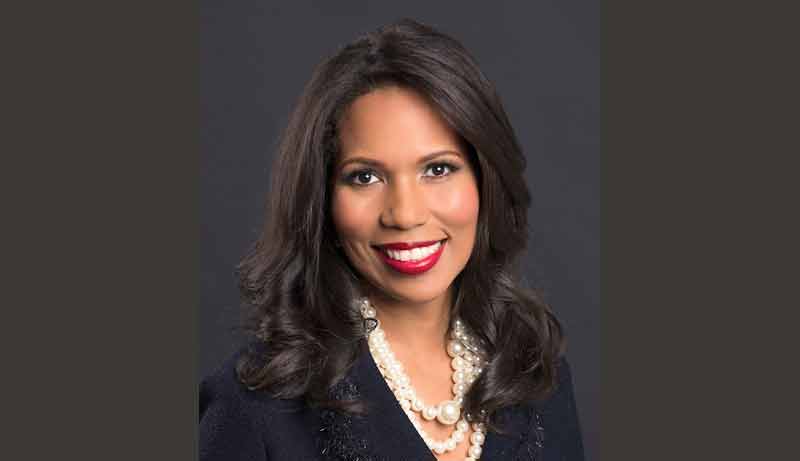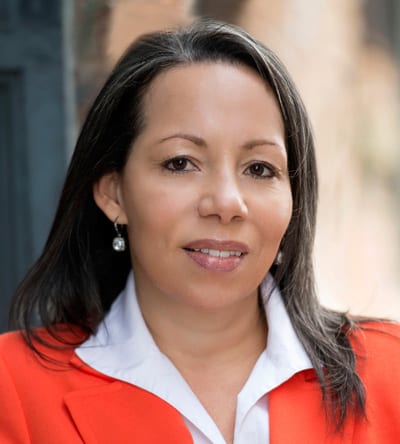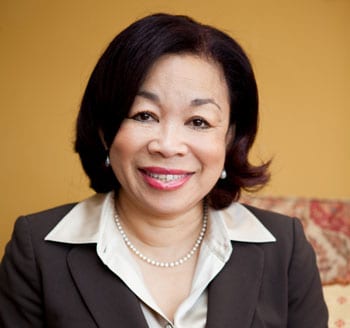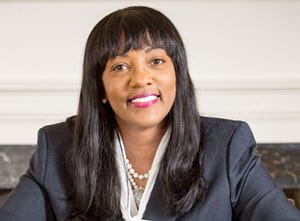‘Diverse: Issues in Higher Education’ Names UNCF Leaders Among Its Top 35 Women in Higher Education
Media Contact
Monique LeNoir UNCF Communications 202.810.0231 monique.lenoir@uncf.org
UNCF Member Presidents and Faculty Among Awardees
Role models among women of color in higher education, Dr. Roslyn Clark Artis of Benedict College; Sharon L. Davies of Spelman College; Dr. Lily D. McNair of Tuskegee University; Dr. Andrea Lewis Miller of LeMoyne-Owen College; and Dr. Latoya Owens of UNCF (United Negro College Fund) have been chosen for the select 2019 list of “Leading Women in Higher Education” by Diverse: Issues In Higher Education. These distinguished women, who all represent UNCF-member institutions, were formally recognized in the magazine’s March 2019 issue. In its second year, this annual recognition honors the contributions of women to higher education who stand out for their ability to forge solutions to the unprecedented challenges facing the nation’s higher education community.
- Dr. Rosyln Clark Artis is the president of Benedict College—the first woman president in the history of the institution—and has already succeeded in the development of the institution’s first master’s degree, an MBA program. Having served as president of Florida Memorial University, she led the expansion of the institution’s online courses, developed new majors in high-demand fields and created academic centers of excellence. Prior to working in higher education, Artis served as a civil law practitioner. Artis sits on the UNCF corporate board of directors and the Council of Independent Colleges’ board of directors.
- Sharon L. Davies is provost and vice president for academic affairs at Spelman College, managing 22 academic departments and programs, faculty development, program reviews, accreditation, research, global studies and the Museum of Fine Art. As chief adviser to the president and faculty on academic affairs, she is responsible for developing educational policy; the recruitment, retention and development of faculty; and staffing the academic and student affairs committee of the board of trustees. Davies served as the Ohio state executive director of the Kirwan Institute for the Study of Race & Ethnicity; and the Gregory H. Williams Chair in Civil Rights & Civil Liberties in the Michael E. Moritz College of Law, later serving as the institution’s vice provost and chief diversity officer.
- A clinical psychologist by training, Tuskegee University’s President Dr. Lily D. McNair’s research focuses on the development and assessment of community-based interventions for African American youth who have experienced substance use and early sexual behavior. McNair has served as associate provost of research and divisional coordinator for science and mathematics at Spelman College; as an associate professor of psychology and associate director of the Clinical Psychology Doctoral Training Program at the University of Georgia; faculty of The State University of New York; and is the co-editor of Women: Images and Realities. McNair’s current research interests include analyzing the role of stress in female college students’ level of alcohol consumption and the dyadic nature of alcohol use and sexual risk-taking.
- Dr. Andrea Lewis Miller, president, LeMoyne-Owen College is the college’s first female president. Miller served as chancellor of Baton Rouge Community College and chancellor of SOWELA Technical Community College in Louisiana. At SOWELA she transformed the former technical college into a comprehensive technical community college and led it through its first SACSCOC accreditation. Miller also served as provost/executive vice president for academic and student affairs at Southwest Tennessee Community College, where she was responsible for strategic planning and institutional research. Prior to her leadership role at community colleges, Miller spent several years in academic administration at four-year institutions. She served for six years as vice president for academic affairs/dean of faculty at LeMoyne-Owen College and as an assistant dean in the College of Human and Community Sciences at the University of Nevada, Reno.
- Dr. Latoya Owens is director of learning and evaluation for the Frederick D. Patterson Research Institute within UNCF. Owens is responsible for developing and executing a broad range of program learning and development efforts associated with external grants. Specifically, she leads the Gates Foundation project, Defining the Connection with Workforce Data and Student Learning in Pathways, that entails documenting and cataloging the use of guided pathways across higher education and leads the learning and evaluation of the UNCF Career Pathways Initiative. The $50 million program, funded by Lilly Endowment, helps four-year HBCUs and other primarily black institutions strengthen institutional career placement outcomes with the goal of increasing the number of graduates who immediately transition to meaningful jobs in their chosen fields. Owens is a former higher education fellow with the Southern Education Foundation and served as an instructor of research, measurement and statistics in the College of Education at Georgia State University. Owens’ most recent research focuses on equity considerations in performance and outcomes-based funding and HBCU student success.
Equally thrilled with Diverse’s selections, UNCF President and CEO Dr. Michael L. Lomax stated, “In an industry such as higher education that has been male-dominated for many years, it’s so critically important to acknowledge diversity and the accomplishments of women, more specifically women of color in higher education. Congratulations to the entire cohort of 2019 winners, including those from UNCF-member institutions who work hard each and every day to improve educational outcomes for students; and to Dr. Owens, who I have been privileged to call a colleague and work alongside as we carry out UNCF’s mission.”
###
About UNCF
UNCF (United Negro College Fund) is the nation’s largest and most effective minority education organization. To serve youth, the community and the nation, UNCF supports students’ education and development through scholarships and other programs, supports and strengthens its 37 member colleges and universities, and advocates for the importance of minority education and college readiness. UNCF institutions and other historically black colleges and universities are highly effective, awarding 21 percent of African American baccalaureate degrees. UNCF administers more than 400 programs, including scholarship, internship and fellowship, mentoring, summer enrichment, and curriculum and faculty development programs. Today, UNCF supports more than 60,000 students at more than 1,100 colleges.



